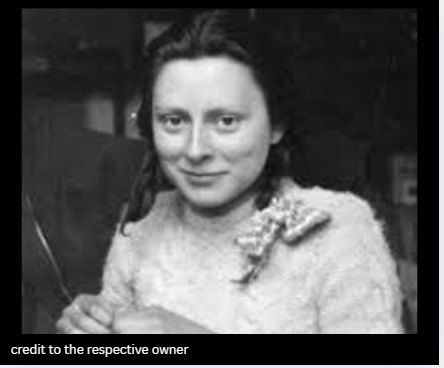In the spring of 1940, when Nazi soldiers marched into the Netherlands, Freddie Oversteegen was still a girl—fourteen years old, with ribbons in her hair and a world of innocence ahead of her. But war has a way of stealing childhoods, and Freddie’s was no exception. Almost overnight, she and her older sister, Truus, became part of the Dutch resistance. Soon, they were joined by another brave teenager, Hannie Schaft.
Their resistance work was more than secret meetings or smuggling Jewish families to safety—though they did that, too. These young women carried weapons, rode bicycles through enemy-held towns, and hatched plans to sabotage the Nazi occupation. They lived double lives, always watching over their shoulders, always aware of the deadly stakes.
Freddie’s role sometimes required her to appear harmless—a tactic as essential as any weapon. She would pedal through the streets, her hair tied with ribbons, looking for all the world like just another carefree girl. She learned to flirt with Nazi officers and collaborators, convincing them to take walks in secluded places—where resistance fighters lay in wait. There were times, too, when Freddie herself had to make the unthinkable choice to pull the trigger.
There was nothing romantic about it. The fear was real, the consequences unimaginable. For the rest of her life, Freddie carried the weight of those decisions—not as a burden, but as a solemn reminder of what it means to choose courage over complacency. She understood, in a way few ever will, the terrible cost of taking a life to save others.
After the war, Freddie didn’t seek recognition or applause. She lived quietly, raising her family, and for years barely spoke of the past. But she never forgot. She knew these stories mattered—not as tales of glory, but as testaments to the kind of bravery that emerges when ordinary people do extraordinary things in the face of unspeakable darkness.
Freddie Oversteegen passed away in 2018, at the age of 92. Reflecting on those years, she once said, “We didn’t think of ourselves as heroes. We just did what had to be done.”
Her life reminds us that true courage isn’t the absence of fear—it’s the willingness to act despite it. And that sometimes, the most profound acts of heroism are carried out quietly, by those who never asked to be called brave.
